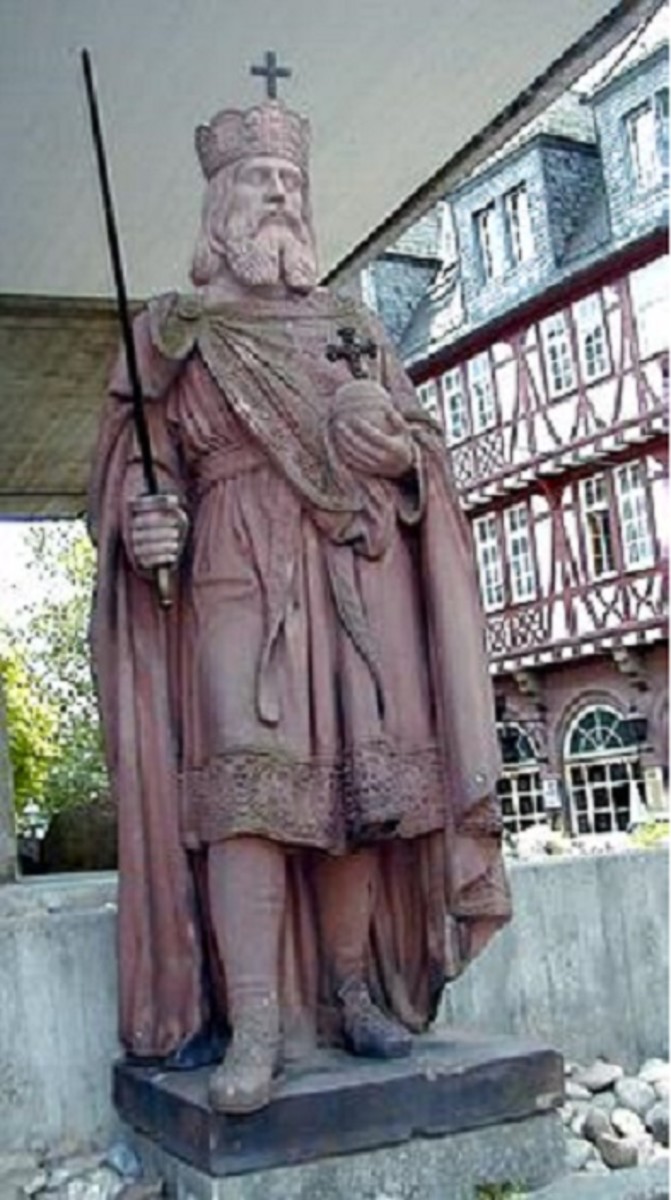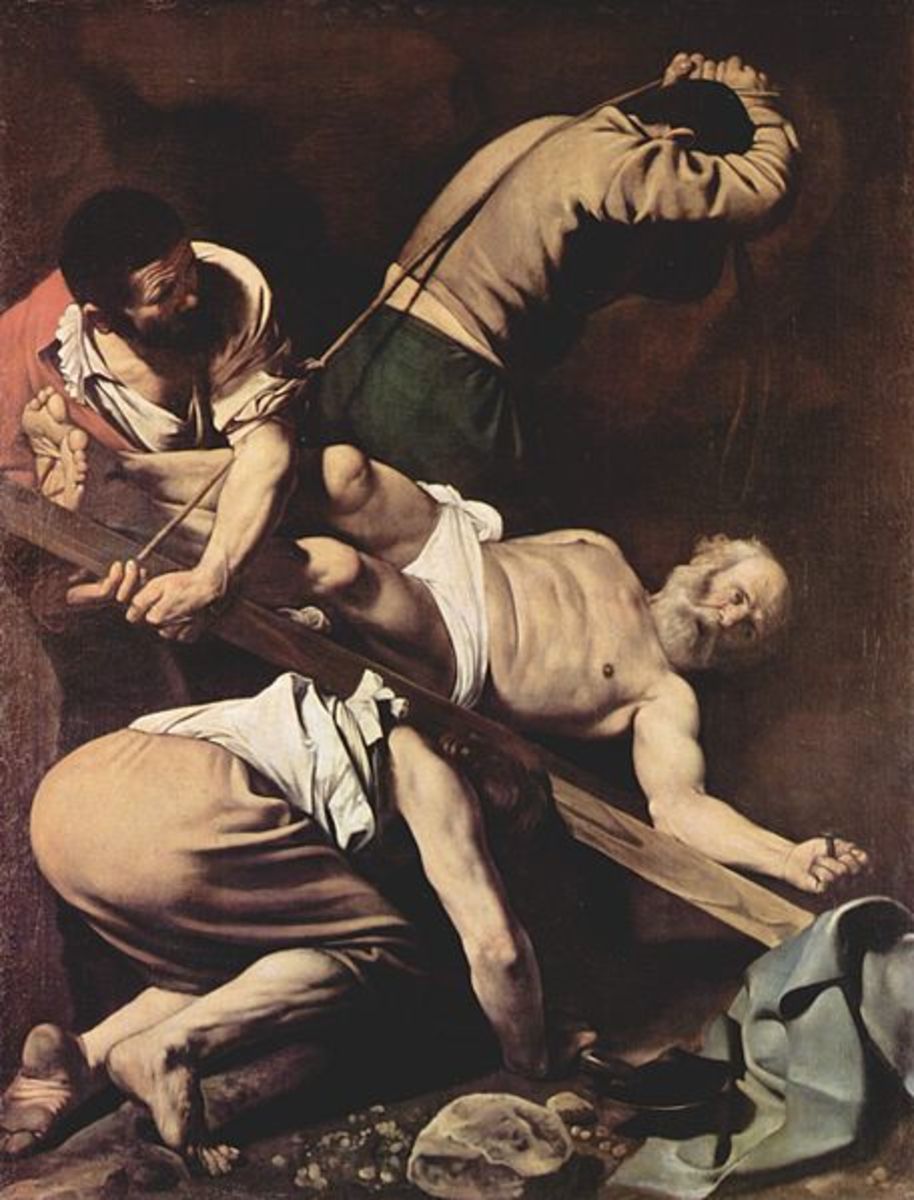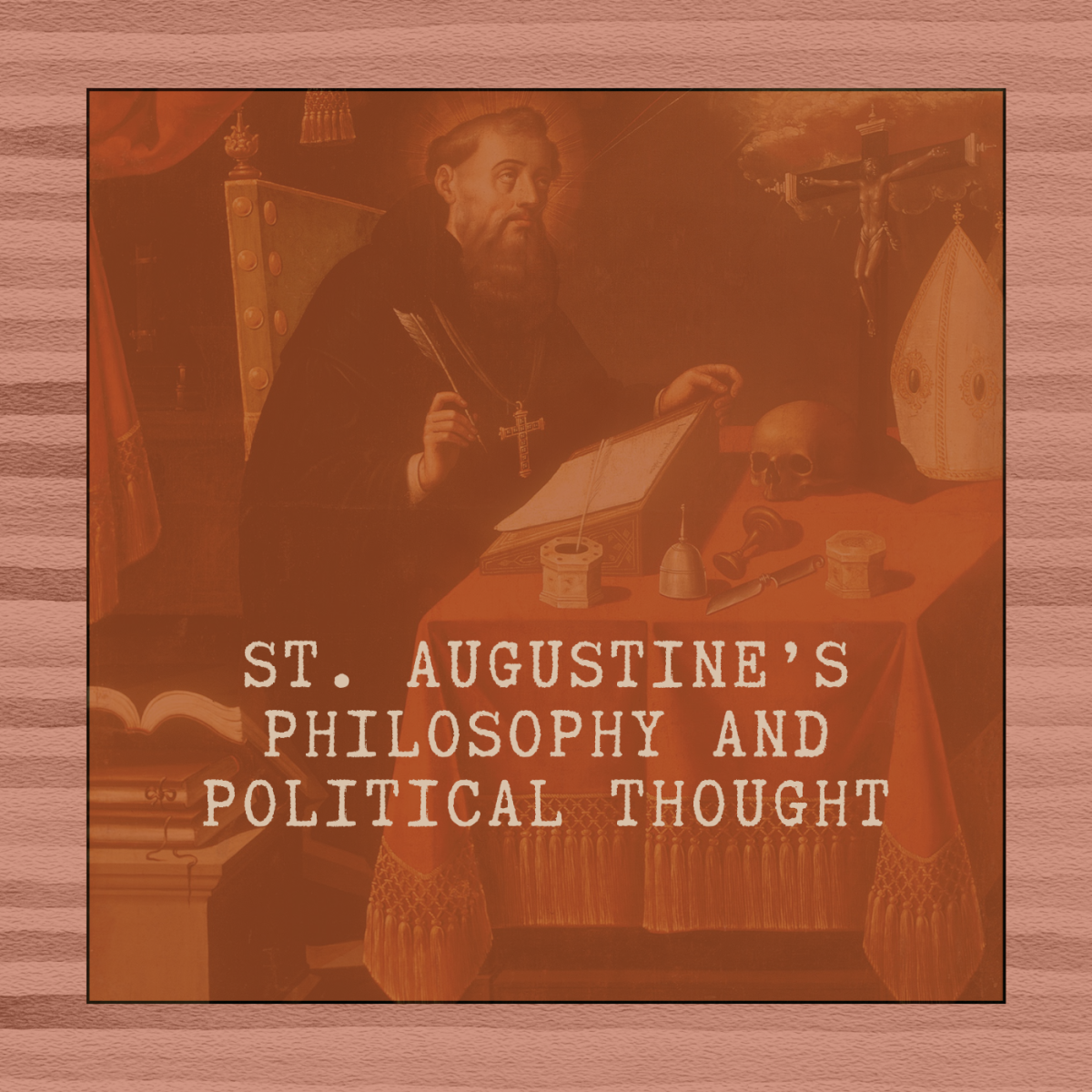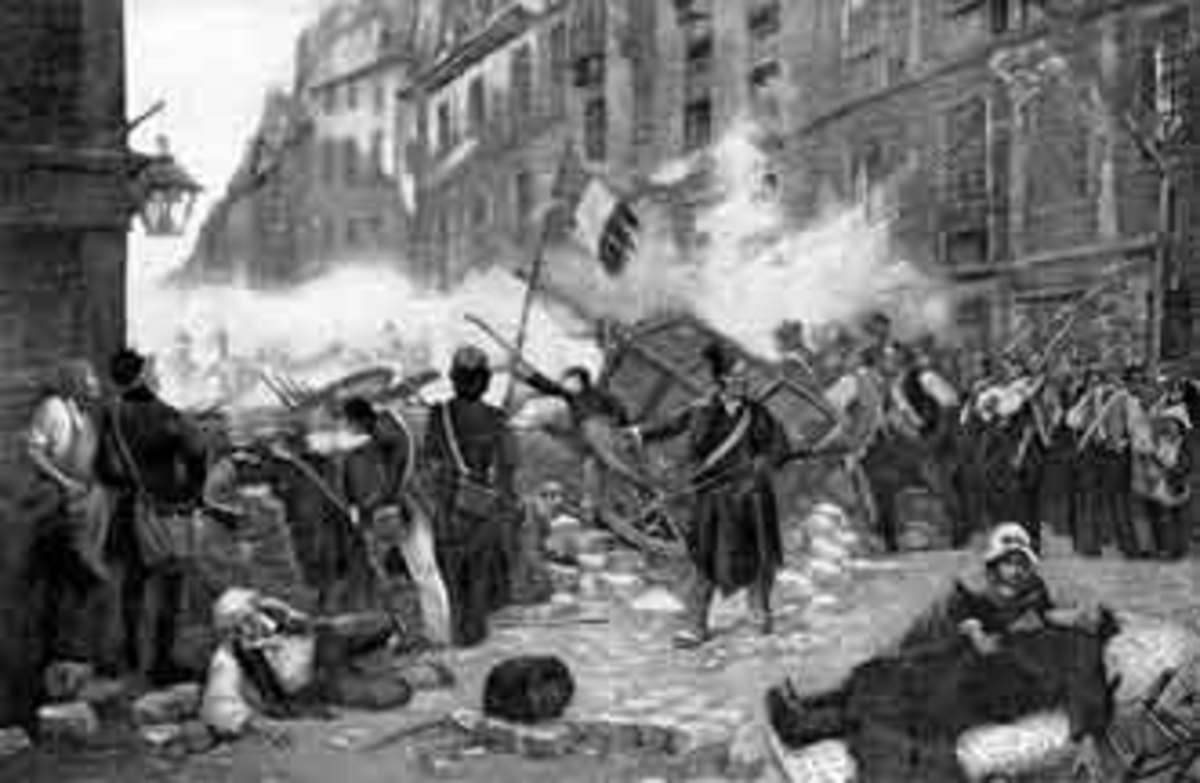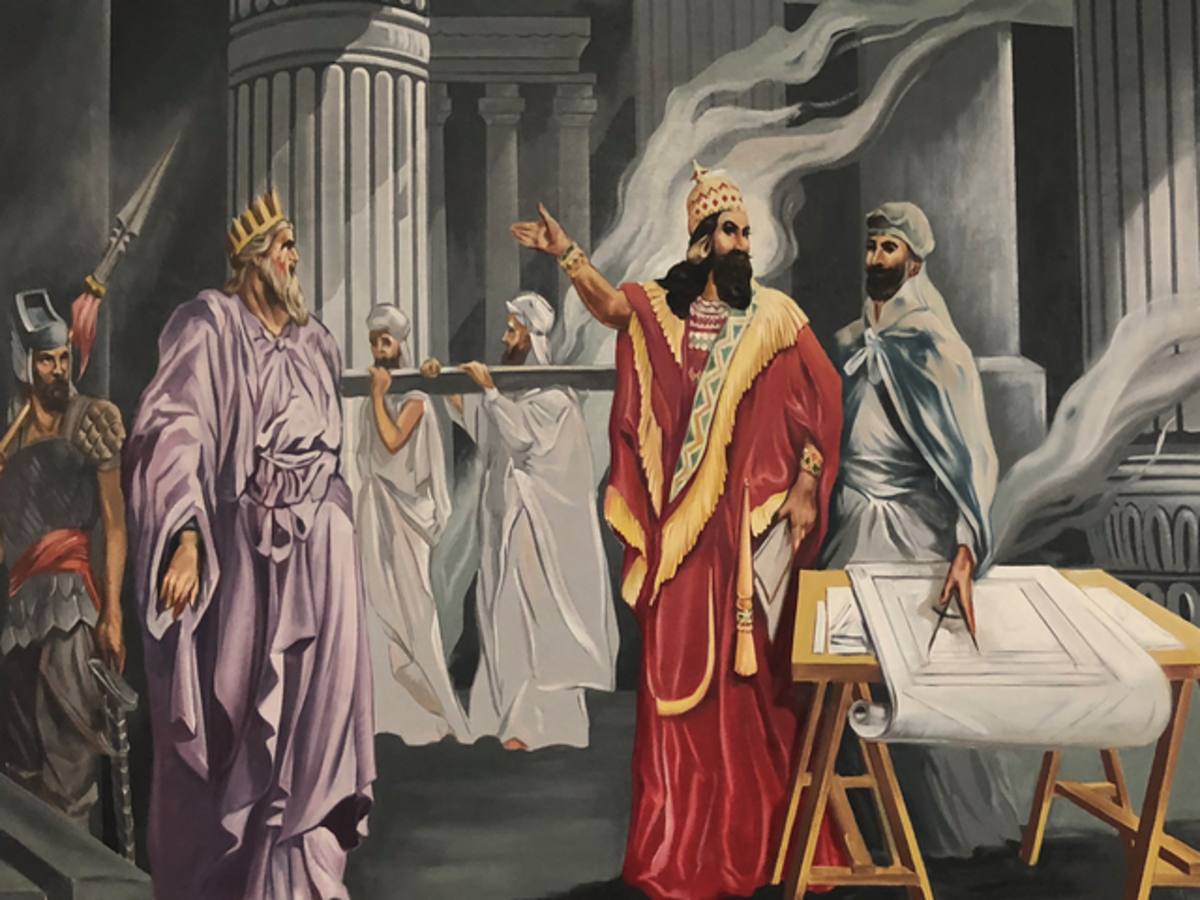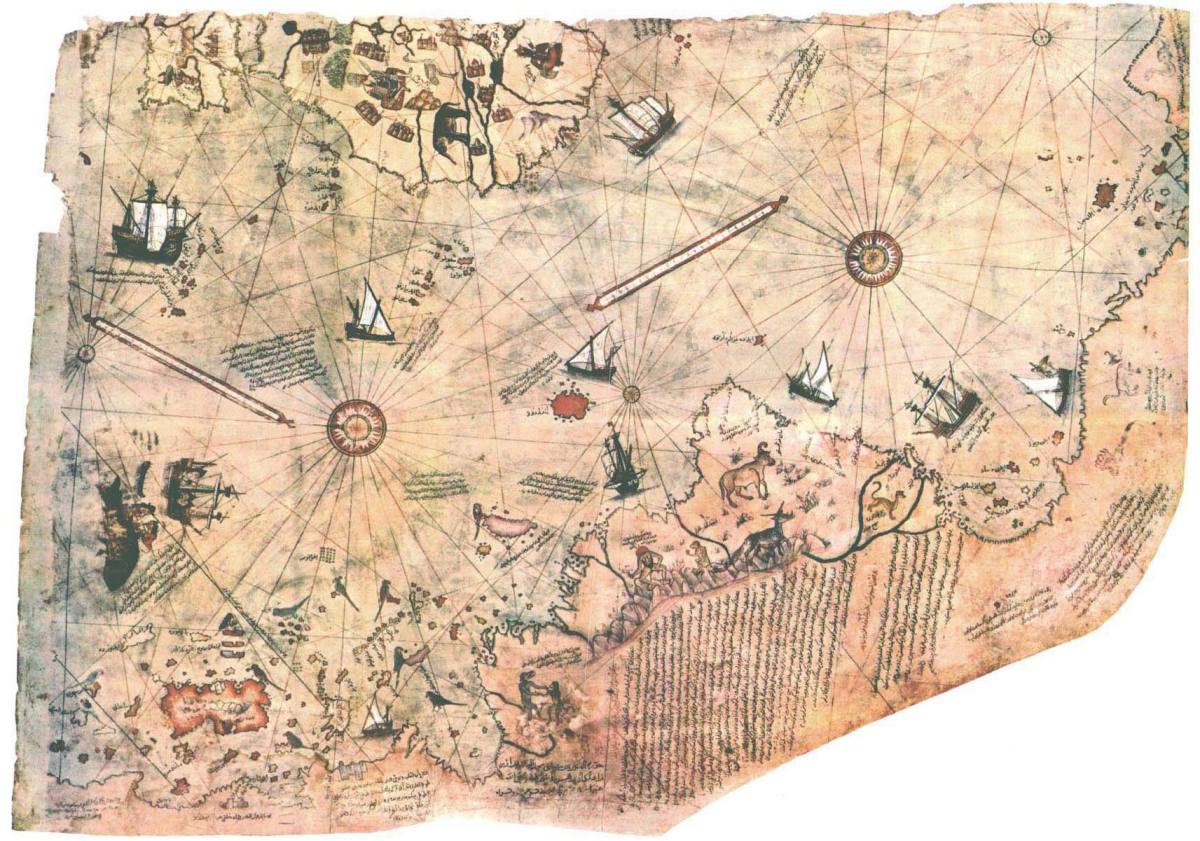The English Become Christian (History in a Nutshell No.4)
After the Romans left the British Isles in 410 AD, the Germanic races invaded and settled in the land. Some of the British inhabitants (including the Romano-Celtic peoples) were already Christian, as the Romans had introduced the religion to them. But the Angles, Saxons and Jutes who had migrated to the island brought their pagan beliefs with them. They worshipped Woden and Thor and many other strange and warlike gods.
Many of our days of the week reveal these ancient beliefs. They are a mix of Germanic, Norse and Roman; we therefore have:
- Monday, the Moon's day
- Tuesday, Tiu the Germanic god of war, synonymous with the Roman Mars
- Wednesday, Woden or Odin's day
- Thursday, Thor's day
- Friday, Freya, the wife of Woden
- Saturday, the old Roman god Saturn
- Sunday, Roman for the Sun
After Roman law and order departed from Britain, everything went backwards. The famous Roman roads fell into disrepair and became overgrown; walls crumbled, buildings and fine villas were destroyed and Roman culture with them. After the deaths of Ambrosius, Vortigern and King Arthur, (yes, he did exist, and passed into legend) the British became rapidly pagan once more.
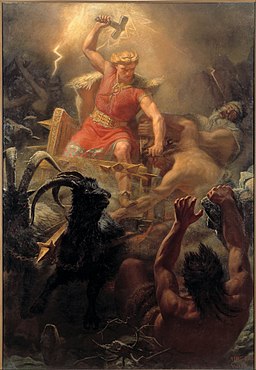
Pope Gregory and St. Augustine
Legend has it that in his early ministry before becoming Pope of Rome, the future Pope Gregory had seen some Anglo-Saxon children standing in Rome and trembling as they were about to be sold as slaves. He inquired about them as he admired their attractive features with blue eyes and long blonde hair. When told that they were "Angles" from Britain, he remarked that they were more like Angels, and never forgot them. Thenceforth when he became Pope, he decided to have them made Christians.
He sent Bishop Augustine to convert the island of Britain around the year 596 AD. Amongst Augustine's first converts were Ethelbert, the king of Kent, and his people. A church was built, the beginning of what would later be known as Canterbury Cathedral.
In London, surrounded by it's old Roman Wall or Barbican, two churches were built which no longer remain, but on their sites stand Westminster Abbey and St. Paul's Cathedral. These churches were built by the command of Sebert, the king of the East Saxons. Westminster in those times was a thorney marshland, known as Thorney Island, but it was cleared enough for a church to be built there and to remain a site of Christian worship for almost 1,500 years. The other church was built on the site of a Roman temple to Diana. It is now St. Paul's Cathedral.
Augustine and his Augustinian monks had a great influence on the Anglo-Saxons that they were busy converting. So much so, that my own family name Austen is a derivative of Augustine.The name Augustine itself comes from the Roman Augustus. Variations of this surname include Austin, Austins, Austeane and several others. These family names are chiefly found in the Kent area, where Augustine set up his ministry all those centuries ago. Therefore, people who bear this name can possibly trace their ancestry back to the period of the 6th Century, and at least as far as the 12th Century as they were named after Augustine's Black Friars (they wore black cloaks) or Black Cannons of that period.
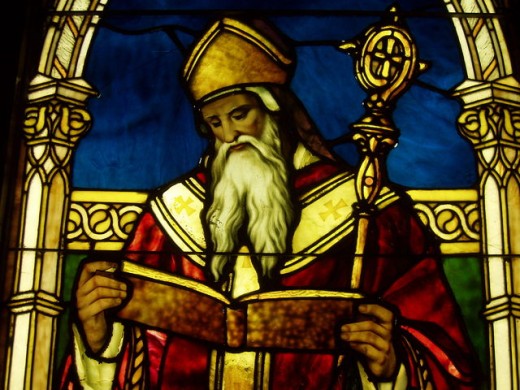
King Offa
We are now in the year 756 AD, over 150 years after St. Augustine's mission to England. In this year, Offa became king of Mercia, or Bretwalda (High King) of the nation. Mercia basically covered the middle part of England, and was bordered by Wales to the West and East Anglia to the East. Above Mercia in the North, was Northumberland, and below in the South was Wessex. Mercia today is known as the Midlands for this very location, sitting in the middle of the country.
King Offa was a powerful king, and a contemporary of Charlemagne the great French king. Indeed, Offa was held in such high regard on the continent that Charlemagne had one of his sons marry one of Offa's daughters. In return, one of Offa's sons would marry a daughter of Charlemagne.
It was at this time that religion and kingship became intertwined, and kings were now consecrated as much as crowned. Church and State were one. This practice continues in England to the present day, so that the bearer of the crown is as much in a religious role as a stately one. The king or queen of the day is the Supreme Head of the Church. In Offa's time, of course, England was Catholic and subject to the Pope of Rome, as it would be until the days of King Henry VIII who reformed the Church after almost 1,000 years of Catholicism.
Offa's Dyke
Yet still for the English there was trouble with the descendants of the original Britons, those Celtic tribes who had disappeared into the hills of Wales, and so Offa had a massive earthen rampart built between England and Wales known as Offa's Dyke which was designed to keep invading Britons out of England. The memories of these ancient Britons was long; the Romans had conquered them, and then the Angles, Saxons and Jutes had come over to claim the island for themselves. They were still fighting against the 'foreign' invader.
King Offa died in the year 796 AD after a reign of 40 years, which was very long for this period in history. We know somewhat of his reign, apart from the building of the famous Dyke. In Sir Francis Palgrave's History of the Anglo-Saxons he mentions several accounts which reveal brutality and cunning in his dealings with rivals. However, this was no doubt typical of many rulers of the time, and we must remember that in those dark times life was hard, nearly always short, and cruel without mercy.
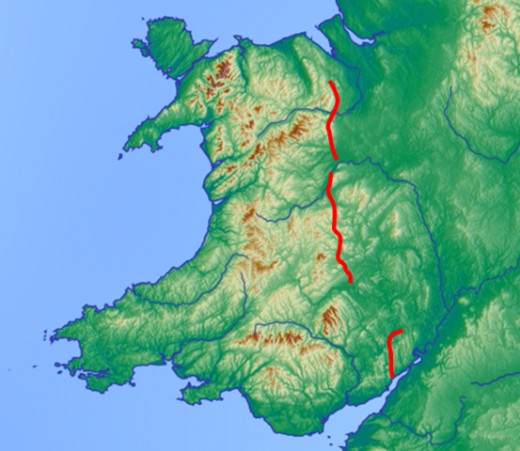
Christianity in Everyday Life
Despite the advent of Christianity into everyday English life, people still had to deal with the harsh realities of their existence with all its injustices despite the teachings of a religion founded on love. We must also remember that the average person of the day was illiterate, and only some were even semi-literate. Those only from privileged, wealthy or Royal families could read at all for the most part. Even then, all religious texts were only ever read in Latin and were in possession of the monasteries. It was after all, the Roman Catholic Church, and Latin was its mother tongue and considered to be the only spiritual language worthy of using in scripture, chants or praise.
So for the ordinary, poor, illiterate person living in Anglo-Saxon England, they only knew of religion what the Roman Catholic Church allowed them to know; they were virtually entirely ignorant of most of the accounts found throughout the Bible. Basically, they were only taught in laymen's terms that which suited the Church's own purposes. None of them would have understood the Latin which was read out to them in church or chapel. They were taught that Christ died for them on the Cross because of their sins. Suffice it for these poor wretches to know that they were sinners from birth, born into sin, guilty of sin, and would be required to confess their sins regularly if they were to avoid eternal damnation.
Against this backdrop of early Christianity in England, we now see the monasteries emerging as not only great centres of learning (we have such monks as the Venerable Bede to thank for the histories that they recorded as well as the famous Anglo-Saxon Chronicles), but as places where great records were kept as well as great treasures. These hordes of treasure would soon attract a new kind of invader; the Vikings.
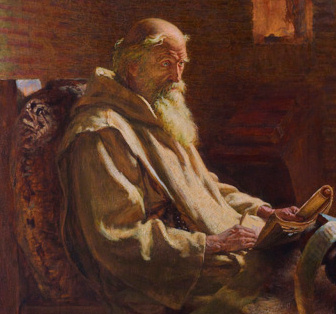
© 2018 S P Austen


